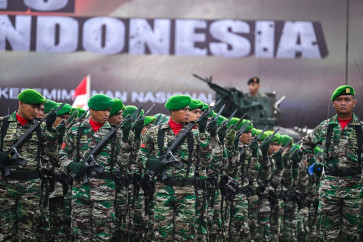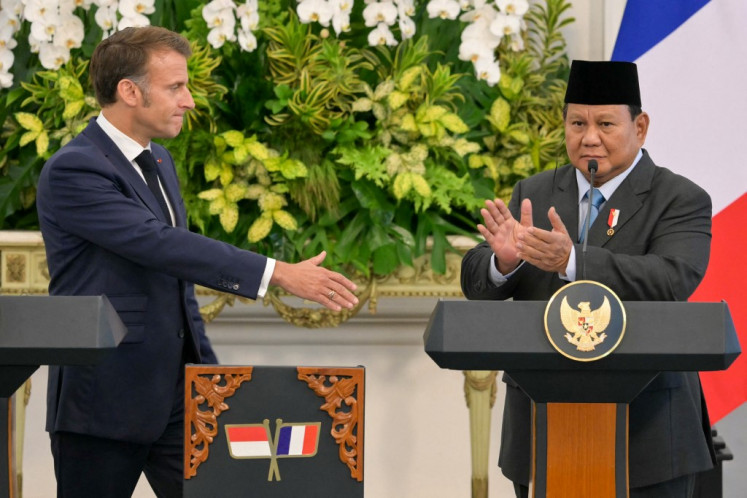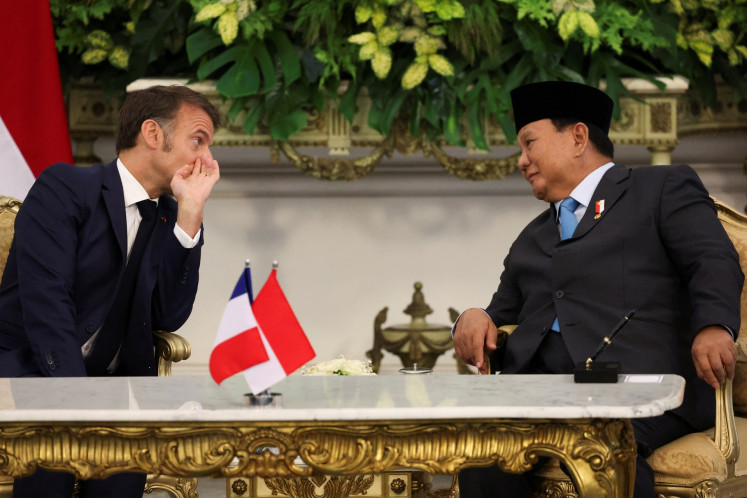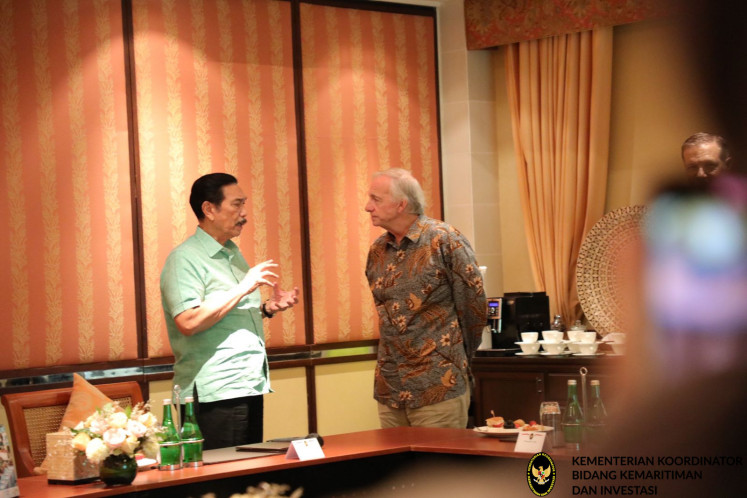Shoppers, sellers lambast Jokowi’s crackdown on thrifting
Thrift-shop sellers and vintage-shopping aficionados have spoken up against the government’s decision to crack down on imported second-hand clothes, which it claims are harmful to the local garment industry.
Change text size
Gift Premium Articles
to Anyone
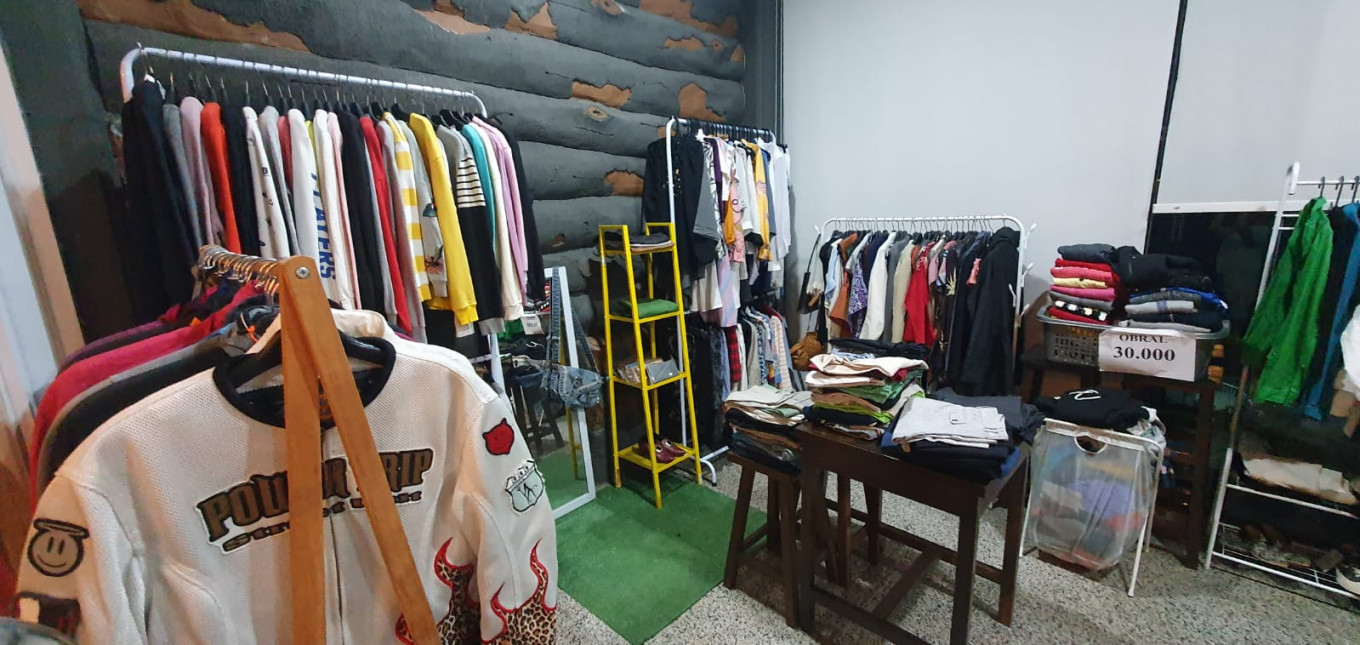
T
hrift-shop sellers and vintage-shopping aficionados have spoken up against the government’s recent decision to crack down on imported second-hand clothes, which it claims are harmful to the domestic garment industry.
Gisela, 33, a freelance translator from South Jakarta who has been an avid thrifter since 2005, insists the policy was misguided, as she believes thrift shops and local clothing stores each had their own separate markets.
“People who come from low-income families choose to buy second-hand clothes because they can’t afford to buy new, whereas the middle-income group goes thrift shopping because they want to find rare or branded items that aren’t locally produced. It’s a very niche market,” she told The Jakarta Post on Friday.
Clamping down on thrift and vintage-clothes shopping, Gisela said, could jeopardize the livelihoods of thousands of small business owners who make a living from it.
“If the government wants to develop the domestic clothing industry, it should focus all its efforts on actually improving the industry instead of cracking down on the second-hand clothing market. If authorities are concerned imported used goods could spread diseases, they should better regulate the process rather than banning it outright,” she said.
Another thrift shopper, 24-year-old Mikhaela from South Jakarta, said she was disappointed with the government’s recent crackdown, saying it would severely limit her options to purchase clothes responsibly.
“I believe thrift shopping is the most socially responsible way to extend the life cycle of clothes. Buying second hand imported apparel is a way to make use of the massive overproduction of fast fashion companies, which would otherwise end up in landfills and pollute the environment,” the NGO worker said.
She suggested the real competitors of the domestic garment industry were international fast fashion companies with large retail shops across the country.
Separately, Bosman Hasugian, a 56-year-old thrift shop owner in a popular shopping mall in South Jakarta, said the government seemed to have not considered the economic impacts of the crackdown on people like him.
He was especially concerned the government crackdown could force him to shut down his business for good, which had slowly recovered from the pandemic slump. He had already shuttered four of his stalls in Blok M Square mall in the first two years of COVID-19.
“I think such a policy is excessive; there are thousands of thrift shops in Indonesia, a lot of them small businesses. If the government wants to ban imported used clothes completely, please provide us with cheap high-quality clothes to sell to our customers,” he told kompas.com.
Andriani, 53, another thrift-shop owner in the same shopping center, said she was quite disappointed when she received a letter from the mall’s management ordering her to close down her shop a few days ago.
“I had to throw away all of my inventory since they got banned. It’s a shame, not only for me but also for my customers. Most of them come from lower economic classes. They visit my stores hoping to purchase high-quality clothing at a bargain,” she said.
Sweeping ban
On Wednesday, President Joko “Jokowi” Widodo ordered authorities to clamp down on the import of used apparel, saying it was “very disruptive” to the domestic textile industry.
“I have given the order for the crackdown and within the last two days many [imported second-hand clothing business] have been discovered,” Jokowi said at a business matching event for locally made products in Jakarta on Wednesday, kompas.com reported.
The government has banned the import of second-hand clothing since 2015, but it did not introduce specific sanctions for violators, rendering the policy ineffective.
Over the next few years, the Trade Ministry tweaked its regulations to accommodate stricter provisions, but the development of e-commerce platforms only increased the challenges faced by the government.
Earlier this week, the National Statistics Agency reported Indonesia had imported 26.22 tonnes of used clothes this year so far, a 277-percent increase from last year. The actual figure is likely to be much higher, as many products enter Indonesia through illegal channels.
Trade Minister Zulkifli Hasan said one of the key factors of poor enforcement of the existing used-garment import ban was the lack of supervision in ports across the country.
“However, the ministry recently formed a task force to better enforce this ban. The team will crack down on thrift shops selling imported clothing, including in Pasar Senen, Central Jakarta," Zulkifli said on Wednesday.
“These businesses can spread various diseases, such as fungal infection,” the minister said.
Pasar Senen is one of the most popular spots for people looking to buy used and vintage clothes. The market itself has been in operation since the 1700s.
On Friday, the ministry made a show of burning around six trucks full of imported used clothes worth more than Rp 10 billion (US$650,804) in Riau province, with Zulkifli saying authorities had been planning to destroy another Rp 10 billion worth of confiscated used clothing next week.
National Police spokesperson Brig. Gen. Ahmad Ramadhan said the police would work closely with the ministry and customs and excise offices to crack down on retailers selling imported second-hand clothing.


